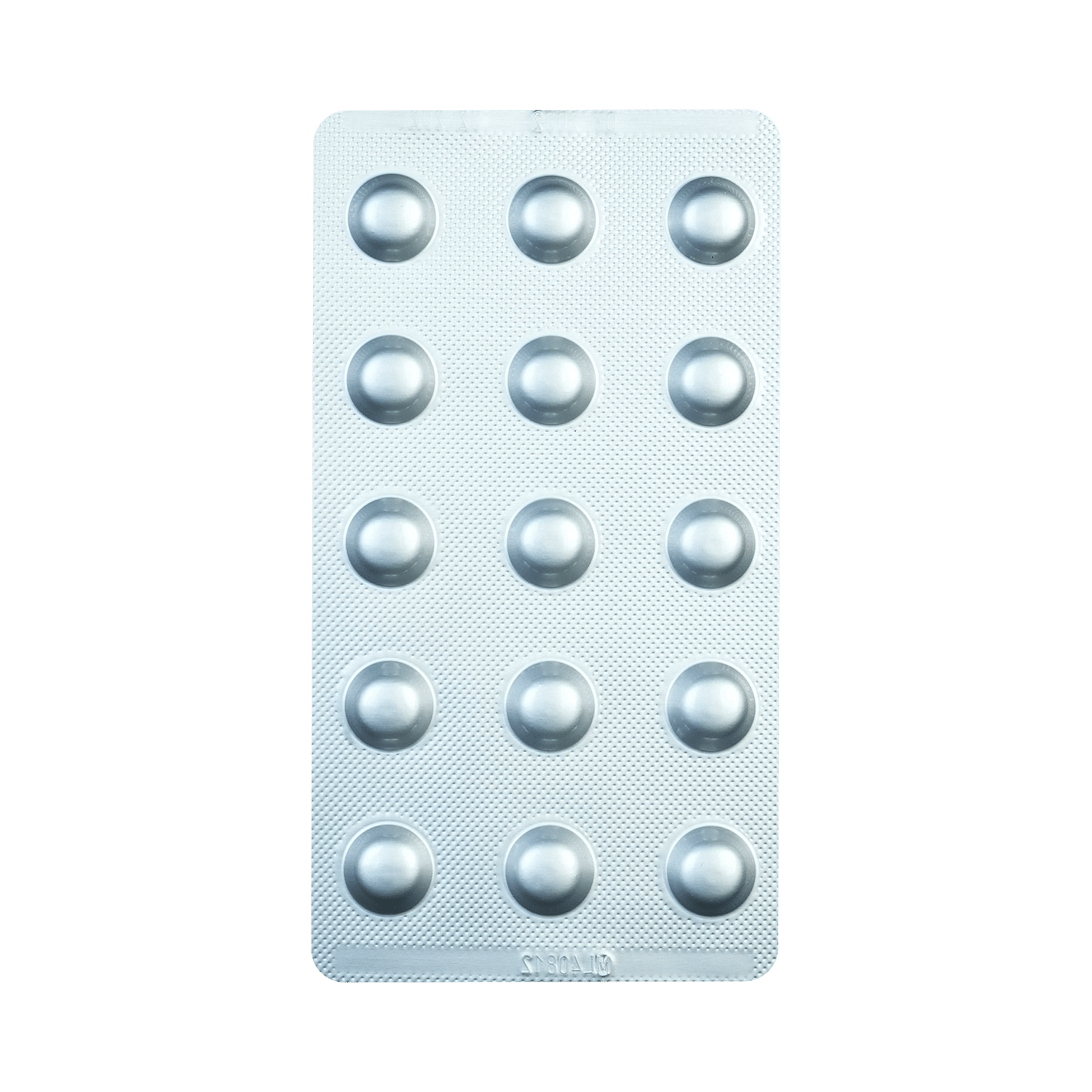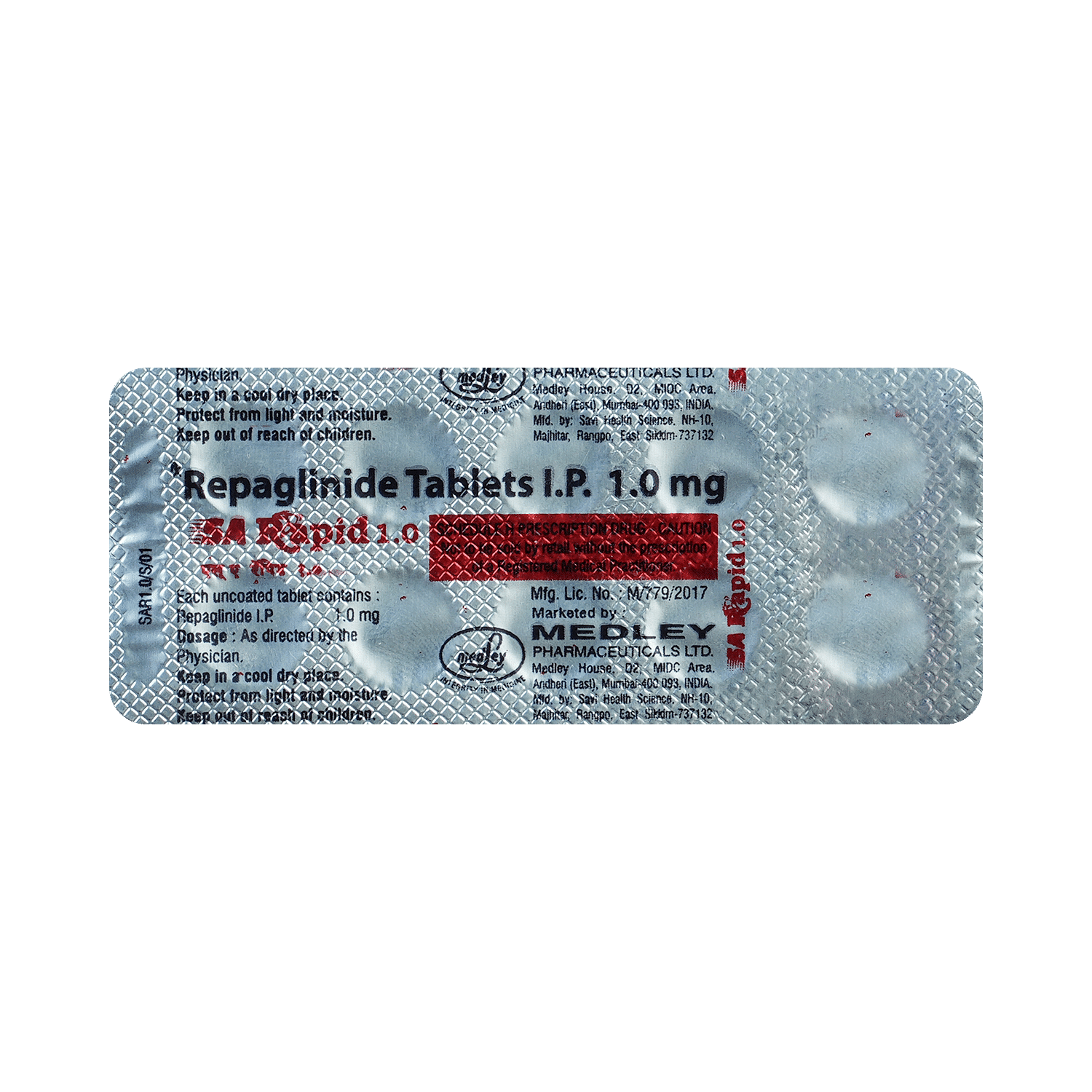
Glugrip 1mg Tablet
Manufacturer
Hospimax Healthcare Pvt Ltd
Salt Composition
Repaglinide (1mg)
Key Information
Short Description
Glugrip 1mg Tablet is used to lower blood sugar levels in adults with type 2 diabetes mellitus. It is usually prescribed along with other diabetes medicines to achieve adequate blood sugar control.
Dosage Form
Tablet
Introduction
Glugrip 1mg Tablet is normally prescribed when diet and exercise alone or other medicines have not been enough to control your blood sugar level. It works best when taken before meals. The dose will depend on your condition and blood sugar levels, but you should take it as advised by your doctor. Take Glugrip 1mg Tablet regularly, at the same time each day, to get the most benefit and you should not stop unless your doctor recommends it. It is controlling your blood sugar levels and helping to prevent serious complications in the future. It is important to stay on the diet and exercise program recommended by your doctor while taking this medicine. Your lifestyle plays a big part in controlling diabetes.
Directions for Use
Take this medicine in the dose and duration as advised by your doctor. Swallow it as a whole. Do not chew, crush, or break it. Glugrip 1mg Tablet is to be taken empty stomach.
Safety Information
Side Effects
Hypoglycemia (low blood sugar levels) Abdominal pain Inflammation of sinus Joint pain Back pain Nausea Diarrhea
Alcohol Warning
It is unsafe to consume alcohol with Glugrip 1mg Tablet.
Breastfeeding Warning
Glugrip 1mg Tablet is probably unsafe to use during breastfeeding. Limited human data suggests that the drug may pass into the breastmilk and harm the baby.
Pregnancy Warning
Glugrip 1mg Tablet may be unsafe to use during pregnancy. Although there are limited studies in humans, animal studies have shown harmful effects on the developing baby. Your doctor will weigh the benefits and any potential risks before prescribing it to you. Please consult your doctor.
Interacting Medicines
Bezafibrate Fenofibrate Gemfibrozil Trimethoprim
How it works
Glugrip 1mg Tablet is an anti-diabetic medication. It increases the amount of insulin released by the pancreas which prevents blood glucose from rising very high after meals.
Quick Tips
Monitor your blood sugar levels regularly while you are taking this medicine. Inform your doctor if you are pregnant, planning pregnancy, or breastfeeding.
Related Medicines

Eurepa-1 Tablet

Novonorm 1mg Tablet

SA Rapid 1mg Tablet

Repa 1mg Tablet

Reglide 1mg Tablet

Shortepa 1mg Tablet

Lunch ON 1mg Tablet

Regan 1mg Tablet

Repadix 1 Tablet

Repanza 1mg Tablet
Frequently asked questions
How long does Glugrip 1mg Tablet take to start working?
Glugrip 1mg Tablet typically starts working within 30 minutes of administration. After taking Glugrip 1mg Tablet, insulin levels increase, leading to a decrease in blood sugar levels. The effect generally lasts for approximately 4 hours.
Can I take alcohol while I am taking Glugrip 1mg Tablet?
No, you should avoid alcohol when taking Glugrip 1mg Tablet because alcohol can interfere with its effects. Combining alcohol may lead to symptoms of low blood sugar, such as weakness, shakiness, cold sweat, pale skin, rapid heartbeat, tremors, extreme hunger, dizziness, headache, and anxiety.
Can Glugrip 1mg Tablet be taken with other antidiabetic drugs?
Yes, Glugrip 1mg Tablet can be taken in combination with other antidiabetic medications. However, consult your healthcare provider for personalized advice regarding dosage and potential interactions.
Can I continue to breastfeed while taking Glugrip 1mg Tablet?
No, breastfeeding should not occur while taking Glugrip 1mg Tablet. If Glugrip 1mg Tablet passes into breast milk, it may lead to low blood sugar in your baby, which is harmful. Consult your healthcare provider for guidance.
Do I need to stop clopidogrel if I am taking Glugrip 1mg Tablet?
You should consult your doctor regarding the appropriate course of action in this situation. If you cannot avoid using clopidogrel while taking Glugrip 1mg Tablet, take 0.5 mg of Glugrip 1mg Tablet before each meal. The total daily dose shouldn't exceed 4 mg, and regular blood sugar monitoring is essential.


